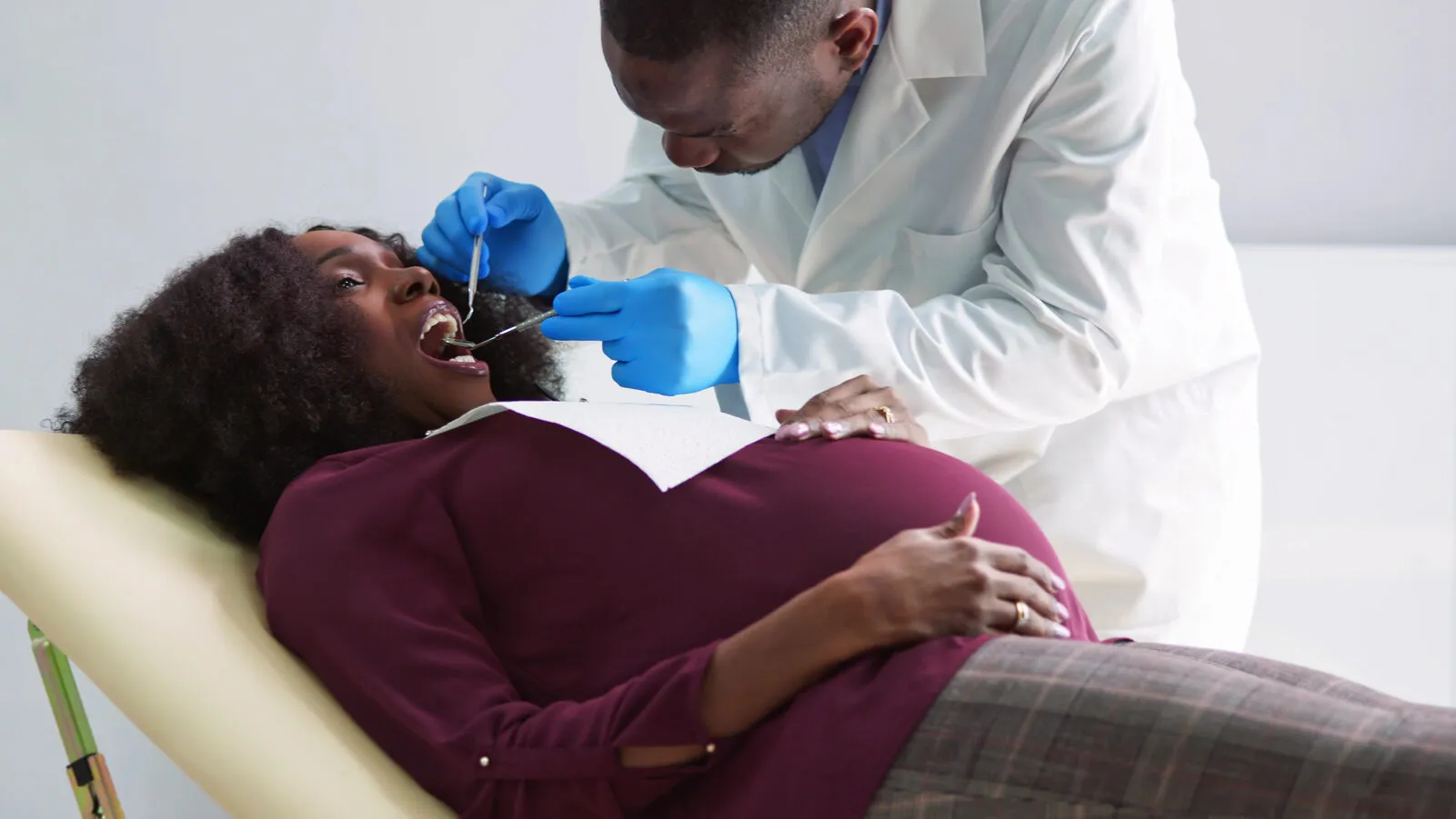Teeth Whitening During Pregnancy The Basics
Pregnancy brings about numerous changes in a woman’s body, and oral health is no exception. Hormonal fluctuations can increase the risk of certain dental issues, while changes in diet and lifestyle may impact the appearance of your teeth. Many expectant mothers desire to maintain or improve their smiles. Understanding the basics of teeth whitening during pregnancy is crucial to ensuring both the mother’s and the baby’s safety. This involves knowing which procedures are safe, what ingredients to avoid, and how to make informed decisions that prioritize health. Remember to always consult with your dentist before starting any teeth whitening treatments during pregnancy, as they can provide personalized advice and guidance tailored to your specific needs and dental history.
Why Teeth Whitening Matters in Pregnancy
Maintaining good oral hygiene and a bright smile is important for overall health and self-esteem, and this is especially true during pregnancy. The hormonal shifts can make gums more sensitive and prone to inflammation, increasing the risk of gingivitis and periodontitis. A clean and healthy mouth can help prevent these issues. Additionally, many pregnant women experience changes in their eating habits and cravings, which can potentially impact the appearance of their teeth. Addressing any staining or discoloration is important for both oral health and a positive self-image during this significant life stage. Moreover, regular dental check-ups and cleanings during pregnancy are vital for addressing any emerging dental problems early on and preventing more serious complications, ultimately contributing to a healthier pregnancy.
Hormonal Changes and Oral Health
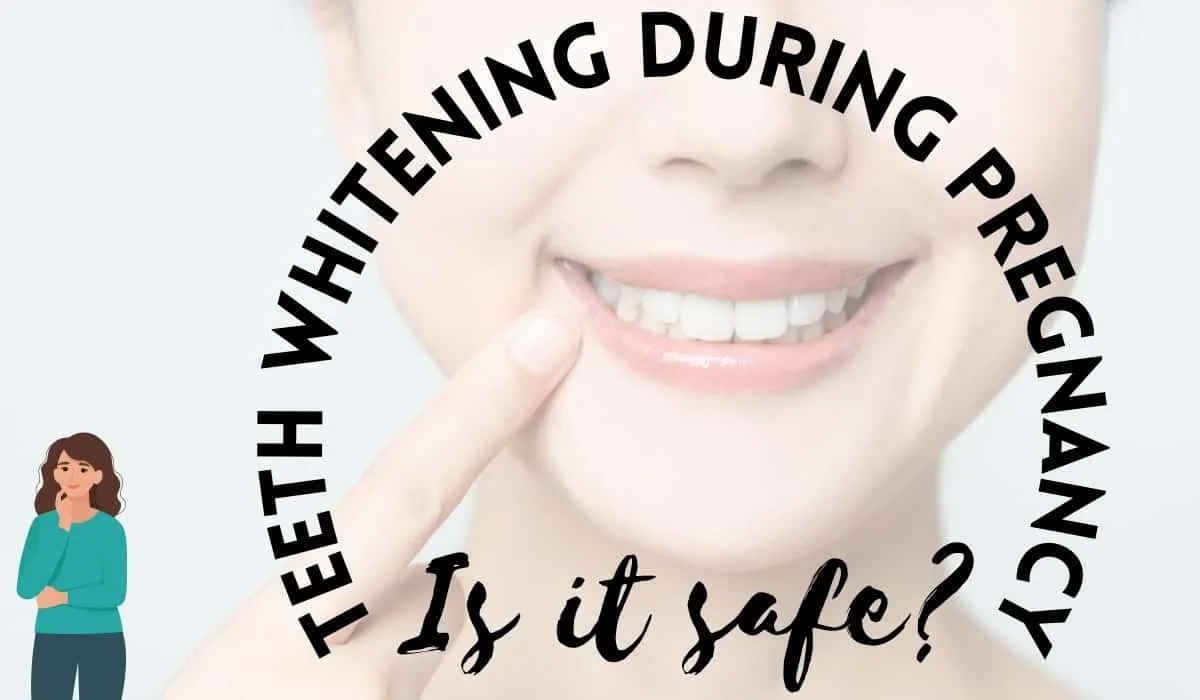
During pregnancy, the body experiences a surge of hormones, particularly estrogen and progesterone. These hormonal changes can significantly impact oral health. Increased blood flow to the gums can make them more sensitive, leading to a condition known as pregnancy gingivitis. This often presents as red, swollen, and easily bleeding gums. These hormonal effects also increase the risk of developing periodontitis, a more severe form of gum disease that can cause tooth loss and has been linked to adverse pregnancy outcomes. Therefore, maintaining meticulous oral hygiene, including regular brushing, flossing, and dental check-ups, becomes even more critical to mitigate these risks. Also, it is recommended to inform your dentist about your pregnancy so they can provide the best possible care. This ensures the overall health and well-being of both the mother and the developing baby.
Addressing Staining and Discoloration
Changes in diet and lifestyle during pregnancy can contribute to tooth staining and discoloration. Certain foods and drinks, like coffee, tea, and berries, can stain teeth over time. Additionally, morning sickness can expose teeth to stomach acid, which can erode enamel and make teeth more susceptible to staining. It is possible to mitigate these issues by adopting a proactive approach to oral hygiene and dietary choices. Brushing your teeth twice daily with a fluoride toothpaste, flossing regularly, and rinsing your mouth with water after meals are all helpful habits. Reducing consumption of staining foods and drinks, and consuming foods rich in calcium, such as dairy and leafy greens, helps to protect the enamel and keep teeth bright. Professional teeth cleanings performed by a dentist can also help to remove surface stains and maintain a healthy smile. Moreover, addressing these issues can enhance the overall well-being of the pregnant woman.
Top 5 Safe Teeth Whitening Tips for Pregnant Women
Consult Your Dentist First
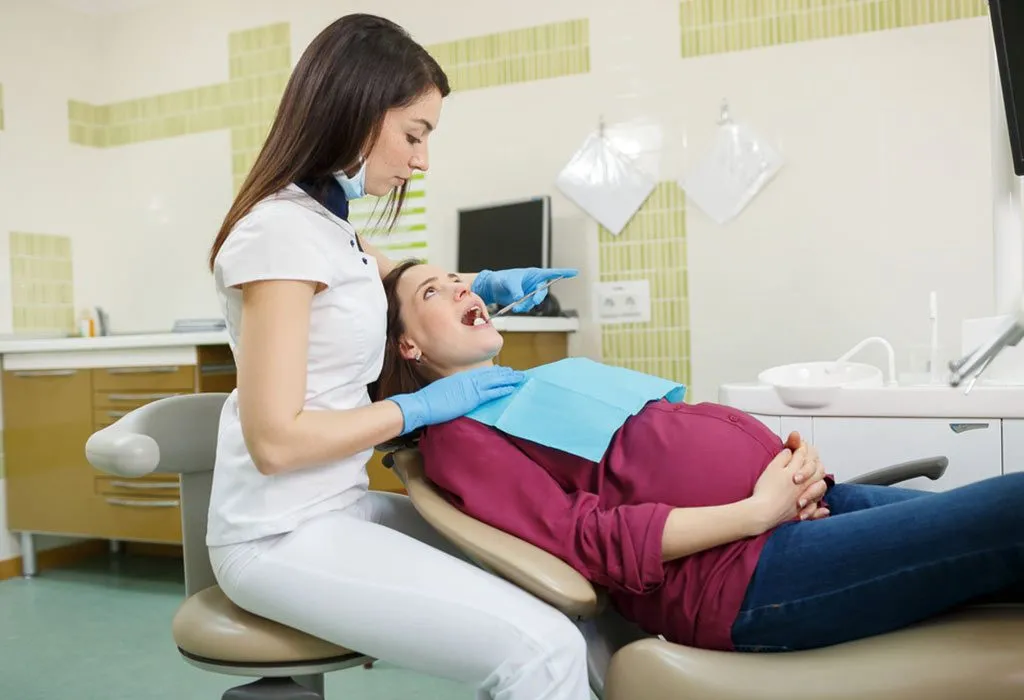
Before considering any teeth whitening procedure, the most important step is to consult your dentist. They can evaluate the condition of your teeth and gums, assess any potential risks, and provide personalized recommendations. Your dentist can also advise you on the safety of various whitening methods during pregnancy, taking into consideration your overall health and specific dental needs. A professional consultation ensures that any chosen treatments are both effective and safe for both you and your baby. It also allows you to discuss any concerns or questions you may have, giving you peace of mind throughout the process. Also, your dentist may suggest alternative options to achieve a brighter smile, such as professional cleaning or adjusting your oral hygiene routine. Ultimately, consulting with a dental professional is essential for making informed decisions and achieving the best possible results while prioritizing the health and safety of both mother and child.
Safe Whitening Product Selection
When selecting teeth whitening products during pregnancy, the ingredients are of primary concern. Opting for products with lower concentrations of active ingredients is crucial. Many dentists recommend avoiding products containing high concentrations of hydrogen peroxide or carbamide peroxide, as these chemicals may have adverse effects during pregnancy. Instead, consider products with lower percentages of these ingredients or explore alternative options that are considered safer. Look for products that have been specifically formulated for sensitive teeth or are labeled as pregnancy-safe. Prioritize products that have been thoroughly tested and approved by dental professionals. When unsure, always consult with your dentist before using any new product. They can provide you with the most accurate and updated information on product safety during pregnancy. This diligence will ensure you are making informed decisions that prioritize your health and your baby’s well-being.
Ingredient Considerations
When evaluating teeth whitening products, it is essential to understand the ingredients and their potential effects. Hydrogen peroxide and carbamide peroxide are the primary bleaching agents in many whitening products. While generally considered safe for adults, their safety during pregnancy is a concern due to limited research. Products containing these ingredients should be used with caution, and it’s always best to consult with your dentist. Other ingredients to consider include the presence of abrasives, which can potentially damage enamel if used excessively. Look for products with gentle, enamel-friendly formulations. Furthermore, be mindful of any potential allergens or irritants. Choose products that are free from harsh chemicals and artificial additives. By carefully examining the ingredient list, you can minimize potential risks and make more informed choices that align with your health goals during pregnancy.
Avoid Harsh Chemicals

During pregnancy, it is best to avoid harsh chemicals in teeth whitening products. Harsh chemicals can potentially be absorbed into the bloodstream. The safety of some of these chemicals during pregnancy is not fully established, and as a result, it is best to exercise caution. Steer clear of products containing high concentrations of hydrogen peroxide or other strong bleaching agents. Also, consider alternatives to products that include alcohol, parabens, or sulfates. These additives can increase sensitivity or irritate the gums. Choosing products with natural, gentler formulations is a safer approach. Opt for products that are specifically designed for sensitive teeth. This minimizes the risk of adverse reactions. Before using any new product, always consult your dentist. Their guidance can help you select the safest and most effective options for maintaining a bright smile during pregnancy while minimizing potential risks to your health and your baby’s well-being.
Maintain Excellent Oral Hygiene
Maintaining excellent oral hygiene is essential during pregnancy, as it is a crucial part of overall health. Regular brushing and flossing are the cornerstones of a good oral care routine. Brushing your teeth at least twice a day with a fluoride toothpaste helps remove plaque and food particles. Flossing daily is equally important, as it removes debris from between teeth and along the gumline. This helps prevent gingivitis and cavities. Moreover, rinsing your mouth with an antibacterial mouthwash can further reduce bacteria and keep your mouth fresh. Regular dental check-ups and professional cleanings are also critical, as your dentist can identify and address any dental issues early on. They can also provide tailored guidance on improving your oral hygiene practices. By adopting and maintaining a comprehensive oral hygiene routine, you can protect your teeth and gums, reduce the risk of dental problems, and ensure a healthy smile throughout your pregnancy.
Brushing and Flossing Techniques
Proper brushing and flossing techniques are the foundation of maintaining good oral hygiene. Use a soft-bristled toothbrush and brush your teeth gently in a circular motion, ensuring you reach all surfaces of each tooth. Brush for at least two minutes each time. Consider using an electric toothbrush, as it can be more effective at removing plaque and debris. Flossing daily is equally important. Use about 18 inches of floss, winding most of it around your middle fingers, leaving about an inch or two to work with. Gently guide the floss between each tooth, using a sawing motion, and curve it around the base of each tooth to remove plaque and debris. Be sure to floss beneath the gum line to ensure cleanliness. It is best to be gentle to avoid irritating the gums. By adhering to these proper brushing and flossing techniques, you can effectively remove plaque and debris, promoting healthy gums and a bright smile.
Regular Dental Checkups
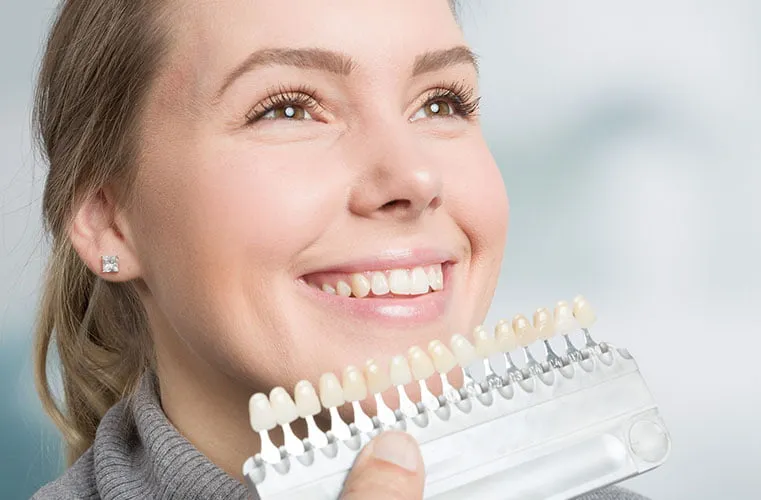
Regular dental checkups are a fundamental component of maintaining good oral health, especially during pregnancy. Schedule appointments every six months, or as recommended by your dentist. During these checkups, your dentist will examine your teeth and gums for any signs of decay, gum disease, or other issues. They will also provide a professional cleaning to remove plaque and tartar buildup, which can’t be removed by brushing and flossing alone. Your dentist may also take X-rays to assess the health of your teeth and jawbone. Informing your dentist about your pregnancy is crucial, as they can tailor your care and choose treatments that are safe for both you and your baby. Regular dental checkups allow for early detection and treatment of dental problems, preventing them from progressing and potentially causing complications. Prioritizing these appointments can contribute to overall health and well-being throughout pregnancy.
Dietary Adjustments for Teeth Whitening
Making dietary adjustments can have a significant impact on your oral health and the appearance of your teeth. Certain foods and drinks can stain teeth, while others can help maintain a bright smile. Limiting the consumption of staining agents, such as coffee, tea, and red wine, can help prevent discoloration. If you do consume these beverages, rinse your mouth with water afterward to minimize their impact. Moreover, a well-balanced diet rich in essential nutrients is critical for oral health. Ensure you’re consuming enough calcium, which strengthens teeth. Vitamin C, found in citrus fruits, helps maintain gum health, which is important for pregnancy. Consider incorporating crunchy fruits and vegetables, such as apples and carrots, into your diet. These foods naturally clean teeth and stimulate saliva production, helping to remove debris and prevent cavities. By adopting a diet focused on whole, unprocessed foods and being mindful of staining agents, you can support your oral health and contribute to a brighter smile.
Foods to Avoid
Certain foods and drinks can contribute to tooth staining and should be limited during pregnancy, to protect your teeth. Highly pigmented beverages like coffee, tea, and red wine are notorious for staining teeth. Minimize your intake of these beverages. Also, limit the consumption of sugary and acidic foods and drinks. These foods can erode tooth enamel, making teeth more vulnerable to staining and decay. Be cautious of dark-colored fruits, such as blueberries and blackberries, and consider rinsing your mouth with water after consumption. Furthermore, processed foods often contain artificial colors and additives that can contribute to staining. Making informed dietary choices and prioritizing foods that promote oral health will make a significant difference in maintaining a bright smile during your pregnancy. Pay attention to what you eat, as the impact on your teeth may be more apparent than you think.
Foods to Embrace
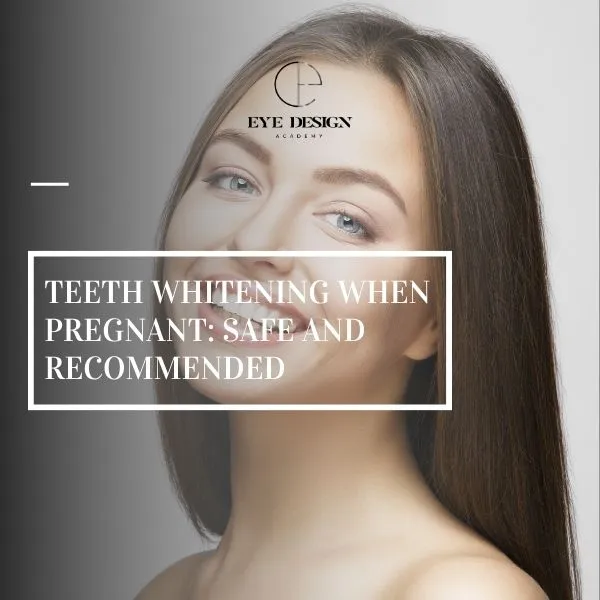
Incorporating certain foods into your diet can help maintain a bright and healthy smile. Crunchy fruits and vegetables, like apples, carrots, and celery, act as natural teeth cleaners, as they help remove surface stains and stimulate saliva production, which neutralizes acids and rinses away food particles. Dairy products, such as milk, cheese, and yogurt, are rich in calcium, which strengthens tooth enamel and helps protect against decay. Foods rich in vitamin C, like citrus fruits, berries, and bell peppers, help maintain healthy gums. Drinking plenty of water is also essential, as it helps rinse away food particles and keeps your mouth hydrated. By including these foods in your diet and being mindful of what you eat, you can protect your teeth and gums and contribute to a brighter, healthier smile during pregnancy. A good and healthy diet is key to overall health during pregnancy.
Postpartum Teeth Whitening Options
After giving birth, you can explore more extensive teeth whitening options that may have been limited during pregnancy. The safety concerns surrounding certain whitening ingredients are no longer applicable. You can consult with your dentist to discuss the most appropriate options for your specific needs and preferences. Your dentist can provide guidance on professional whitening procedures, such as in-office treatments or custom-fitted trays with stronger bleaching agents. These treatments often yield more dramatic and faster results compared to over-the-counter options. Additionally, you can consider at-home whitening kits with higher concentrations of active ingredients than are safe during pregnancy. The best option depends on the state of your teeth and the results you want. During the postpartum period, you can choose from a wider range of options and achieve the brighter, whiter smile you desire, once you’ve fully recovered from childbirth.
When to Begin Whitening
The timing for beginning teeth whitening after pregnancy depends on several factors, including your overall health, breastfeeding status, and personal comfort level. Generally, it is advisable to wait until after you have finished breastfeeding to consider more aggressive whitening treatments. While there is limited data on the effects of teeth whitening ingredients on infants through breast milk, it’s best to exercise caution. Consult with your doctor or dentist to determine the safest and most appropriate time to start whitening your teeth. If you are not breastfeeding, you may begin whitening your teeth once you have fully recovered from childbirth. However, if you are experiencing any health complications, be sure to seek medical advice. You can start with gentle, over-the-counter whitening options and gradually explore more advanced treatments, once you’re cleared by your healthcare provider. This can include in-office procedures or higher-strength at-home kits. It’s crucial to prioritize your health and the well-being of your baby. Listen to your body and take your time, and enjoy the process of restoring your smile.
Professional Whitening Procedures
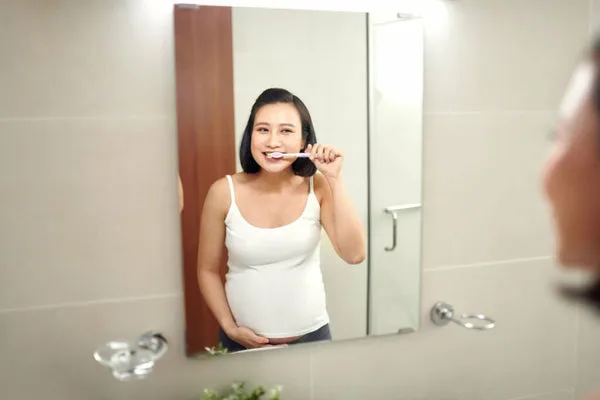
Professional teeth whitening procedures offer more potent and long-lasting results compared to at-home options. Your dentist can perform in-office whitening treatments, which use a high concentration of hydrogen peroxide gel. This procedure is applied to the teeth and activated with a special light or laser, accelerating the whitening process. This type of procedure is very effective and can significantly brighten your smile in a single appointment. Your dentist can also create custom-fitted whitening trays for at-home use, using a stronger bleaching agent than over-the-counter kits. You will wear the trays for a specific amount of time each day, based on your dentist’s instructions. These custom trays ensure the bleaching gel contacts all tooth surfaces evenly. In addition to professional whitening treatments, your dentist can also provide other cosmetic procedures, such as veneers or bonding. After a successful pregnancy, professional whitening procedures can safely help you achieve a brighter, more confident smile.
In conclusion, maintaining a healthy and beautiful smile during pregnancy requires a balanced approach. Prioritizing oral hygiene, making informed dietary choices, and consulting with a dentist are key components. While teeth whitening can be a cosmetic concern, safety should always be the top priority. By following the top 5 tips, pregnant women can minimize risks and make the best decisions for both themselves and their babies. Embracing a comprehensive approach that prioritizes overall health and well-being will ensure a radiant smile and a healthy pregnancy. Always consult a dentist.
